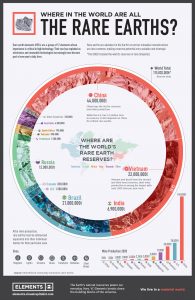Currency
U.S. Treasury Secretary Janet Yellen has given her opinions on the potential of a digital dollar but is hesitant to come to any conclusions at this stage in proceedings. Yellen said on Thursday that she had not formed a view on whether the Federal Reserve should create a digital version of the dollar, but such a move would require broad consensus among Congress, the U.S. central bank and the White House.
This follows the recent reports that the Federal Reserve is currently researching whether an electronic version of the greenback would be beneficial. Yellen said that she sees both pros and cons to the digital dollar. Although she does have thoughts on its implementation, she feels more research needs to be done before coming up with any definite answers.
According to Yellen, the advantages of a central bank digital currency need further study, including its effects on banking institutions.
In contrast, Federal Reserve Governor Lael Brainard, whom President Biden has chosen for vice-chair of the US central bank, has called for urgency in establishing a digital dollar. She suggested that she can’t fathom not having one when China and other nations are developing their own central bank digital currencies, which she considers a race to the top…read more.
- Warren Buffett’s right-hand man Charlie Munger said markets are even crazier now than during the dotcom bubble.
- “I wouldn’t want any one of them to marry into my family,” he said about people who invest in cryptocurrencies.
- The Berkshire Hathaway exec said China is right to stamp down on bubbles and take a tough line on digital assets.
Warren Buffett’s deputy Charlie Munger has said markets are “even crazier” right now than they were during the dotcom bubble.
Munger blasted cryptocurrencies, and said those who invest in them are just thinking about themselves, according to the Australian Financial Review. He also labeled US millennials as “self-centered.”
The 97-year-old has been Buffett’s closest confidante for decades and is vice chairman of the sprawling Berkshire Hathaway conglomerate. He has a net worth of $2.2 billion, according to Forbes.
“The dotcom boom was crazier on the valuations even than we have now. But overall, I consider this era even crazier than the dotcom era,” he said in a Friday interview at the Sohn Hearts & Minds Investment Conference in Australia…read more.
For the last several months, corporate executives have been loudly lamenting the rising cost of doing business due to supply-chain disruptions and labor shortages.
Indeed, inflation at levels not seen since the early 1990’s has shown itself to be both larger and more persistent than almost anyone is comfortable with.
Roughly four out of five companies surveyed by the Richmond Federal Reserve reported hiking up prices for consumers to cover “at least some” of the input costs they were experiencing.
But those same execs have been a bit more discreet — apart from their quarterly earnings calls — about celebrating the record profit margins they’ve been able to achieve by not only passing costs on to customers, but by charging even more.
More than half of the companies surveyed by the small business services reviews website Digital.com reported raising prices beyond what was required to offset rising input costs.
“In other words, businesses are inflating already inflated prices in order to turn a bigger profit amid people’s fears over uncertain times,” the sites small business expert, Dennis Consorte, said in a statement.
Additionally, large firms were more likely to engage in this practice than small businesses, the survey found…read more.
If you’re interested in a particular investment area, such as, say, a sector of the stock market, you likely don’t have time to research every single company to determine which you think is best. Plus, even if you know your stuff, there’s still the chance that any investment in a single entity could go down dramatically. That’s why market pros recommend spreading your bets by buying a large swath of investments, thereby lowering the chances that your portfolio could tank due to a large drawdown in any particular position.
When it comes to traditional investments, such as stocks and bonds, a cheap and easy way to access that kind of diversification is often an exchange-traded fund, which holds a basket of investments, trades on an exchange like a stock, and usually comes with a small management fee.
If you’re interested in the world of cryptocurrency, however, an ETF is a less straightforward bet. Last week, the Securities and Exchange Commission rejected an ETF from fund firm VanEck that would have directly tracked the price of bitcoin. When it comes to cryptocurrency prices, “The SEC has fundamental concerns about the potential for fraud and manipulation,” says Ben Johnson, director of global ETF research for Morningstar. He added that you’re unlikely to see an ETF that directly tracks the price of crypto “until there are specific solutions in place to address those concerns.”
In the meantime, you can still buy one of several ETFs with “bitcoin” or “crypto” in the name, but they may not deliver the kind of investment you’re looking for — especially if you’re looking to diversify your crypto portfolio. In fact, as currently constructed, prominent crypto ETFs often see investors “effectively selling low and buying high,” Johnson says. “That’s not a winning investment strategy.”…read more.

















